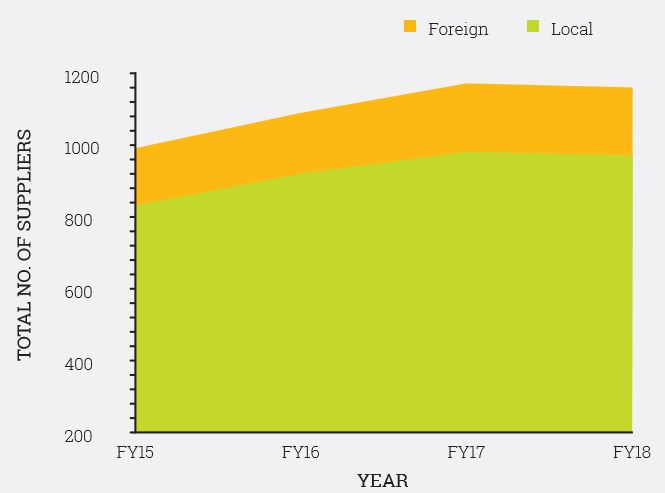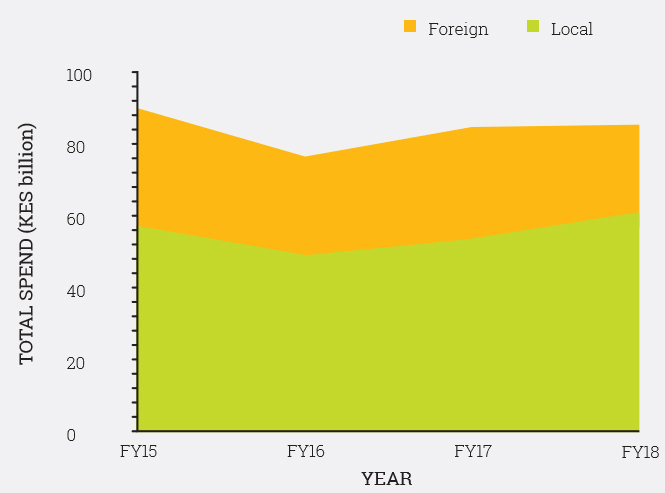The turbulence around the elections was a concern this year and our focus was on minimising disruption to our partners and keeping them safe. Some infrastructure was damaged, and we withdrew from the market in July, but we are pleased to report that perceptions and business levels have recovered since then.
Two of the ongoing ways in which we seek to discover, and address, agent concerns and frustrations are through hosting Principle Forums twice a year in all six regions and providing Agent Assistance Training sessions every quarter in all sales areas. Our Principle Forums address a range of issues, including: how to grow businesses; identifying new investment opportunities; new products; the Know Your Customer (KYC) initiative; security of outlets; and emerging types of fraud.
We also hosted our popular Regional Agent Awards during the year and rewarded our 98 top-performing M-PESA outlets with KES 2.8 million in prizes. A reflection of how our network is maturing, we doubled the number of care desks to 137 during the year, hiring and training members of the local communities as part of the process.
We also upgraded 3 strong performing aggregated outlets (subagents) to Full M-PESA agencies during the year, which entitles them to earn 100 per cent commissions. We continued to offer fl oat automation, through which agents who maintain fl oat levels of KES 20,000 and above in 70 per cent of their network can apply for additional tills automatically, and offered weekend capital financing of KES 1 billion to 1,324 agents.
We also continued to work with agents to address security concerns, with theft and losses from armed robberies a growing issue, and we installed 1,100 security boxes (safes) at 965 agent outlets and 135 care desks. We have also purchased an additional 2,000 security boxes and will offer these to agents on a subsidised basis (we will cover 40 per cent of the cost) during FY19.







